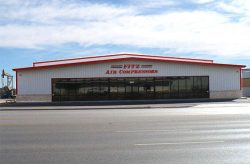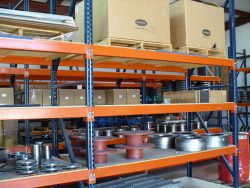Construction Site Safety During COVID-19
Construction site safety is a big issue. Although it’s regularly challenging in nature, thanks to the global pandemic we are dealing with, construction sites now face even more obstacles. With construction resuming again, many construction business owners and managers have to figure out the best ways to protect their workers from the spread of COVID-19 while keeping safe onsite.
The Center for Disease Control (CDC) and Occupational Safety and Health Administration (OSHA) have set up specific COVID-19 guidelines for construction companies. So, before workers return, these companies need to consider each guideline and ensure they are ready for implementation. Let’s take a look at these points:
- What workers should do if they get sick
- How to disinfect and clean the project site, tools, materials, and equipment
- How to conduct temperature screenings
- Where handwashing stations should be placed and the frequency of use
- What personal protective equipment (PPE) is required
- How to achieve physical distancing onsite
- What rules will be in place for accepting onsite deliveries
- How to communicate their policies and protocols to workers before their return
Construction Site Safety Tips
Here are some tips on how construction companies can go about creating and implementing frameworks around these guidelines:
Develop Project-Specific COVID-19 Safety Protocols
In order to come up with a project-specific COVID-19 safety plan, it’s best to take a look at the etiquettes of similarly situated projects. Although each project is unique, they all share commonalities. Learning from other construction companies and what they are doing can also help create best practices for your project and team. Once you have a bigger picture of the project, project managers should create new procedures that include the COVID-19 guidelines set out by the CDC, OSHA, and state authorities for their workers to follow. Construction managers must also remember the importance of monitoring protocol compliance of the entire project team.
Training Employees Regarding COVID-19 Protocols
Although the protocols may seem simple in understanding, training is essential for properly implementing and understanding these procedures in context on the project site. If you find employees repeatedly in noncompliance with the protocols, it is time for a refresher course or retraining.
Implementing Onsite Monitoring Activities
It’s a good idea to ensure your site has frequent visits from safety professionals and even independent consultants to observe, monitor, document, and correct compliance matters regarding the COVID-19 protocols. Create a construction site safety checklist to help with effectively monitoring compliance of the safety protocols yourself. These monitoring activities will help ensure your workers are doing their best, correct any ‘bad’ behavior, and track your team’s progress. The list can include things like social distancing, regular handwashing, PPE compliance, etc. Something else to include is a daily log of incidents of exposure to the virus, disinfection schedules, screening results, health questions, etc.
Data Analysis to Pinpoint Areas of Concern
When owners and construction managers merge the data from site visits, monitoring activities, daily logs, etc., they should have a lot of information available to make any necessary improvements to their protocols and combat the spread of the virus. This information should help identify the weak links, specific non-compliant workers, subcontractors, and any repeat offenders they may be trading with, resulting in solutions to any problems. All this information can help with contact tracing, too, meaning managers can pinpoint any specific individuals who may have been exposed to the virus and spread the virus to other coworkers.
Although there is just no way of ensuring your team is at some stage infected, setting up formal guidelines on each project will help keep your workers stay as safe as possible and able to tackle their job in the best way possible under these circumstances.
Looking for New Industrial Equipment?
If you are looking for advice on new industrial equipment that is best for your business or the servicing of air compressors and torque converters, contact Fitz Equipment. With over 50 years of dependable, fast, and friendly service, Fitz Equipment manufactures parts for torque converters and specialty machine parts. Fitz Equipment may have expanded, but one thing hasn’t changed. It is still a family-owned business with a commitment to superior customer service.




